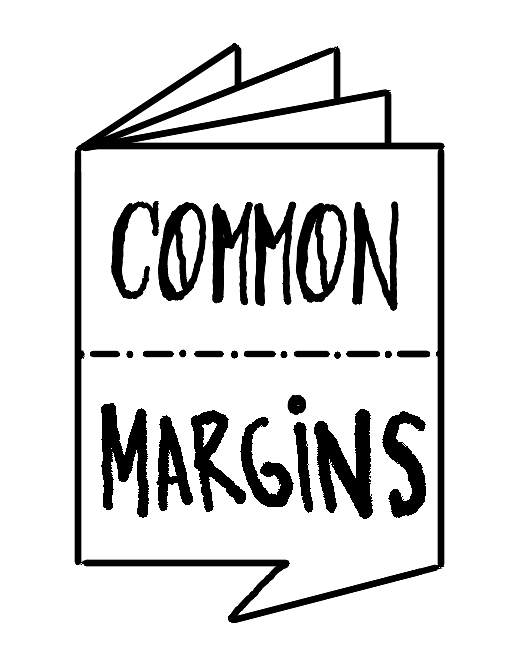Common Margins
Commons-oriented research through co-creation, ethnography & DIY publishing
Common Margins is the action research initiative behind the pliegOS open editorial project. We work on co-creation processes and “do-it-yourself” publishing to explore how communities generate, share and preserve knowledge and cultural artifacts, grounded in and oriented towards the Commons. From zines, pads and other ephemeral formats to wikis, toolkits and experimental collective archives, we treat paper and (s)low-tech materials not as relics or luddite nostalgia but as convivial, appropriate technologies that allow diverse methodological advances. Especially for supporting collaborative ethnography, distributed learning and alternative peer-to-peer paths of communication in an era of extreme data extractivism and algorithmic acceleration.
3 interconnected axes
Common Margins is structured around three interconnected axes (co-creation, open infrastructures and collection & analysis processes) connecting situated practices with a shared critical inquiry approach.
 Co-creation as research
Co-creation as research
Facilitation & documentation of DIY workshops, creative retreats and citizen-ethnographic encounters for zine-making, participatory design and/or situated learning that serve both as qualitative research and as channels for collective expression.
 Open infrastructure
Open infrastructure
Development & remix of simple, accessible tools and materials to co-design, share and remix research outcomes and methods under open knowledge licenses – treating publishing technologies and co-creation practices as a commons.
 Collection & analysis
Collection & analysis
Digitising & studying zines (own, co-created and historical) as well as co-creation toolkits and outcomes to understand themes, aesthetics and networks of independent publishing and thinking.
Conceptual pillars
 Algorithmic caution & analog creativity
Algorithmic caution & analog creativity
Against the current digital push toward AI-automation and speed, we embrace cautious, critical engagements with LLMs with the aim of resisting extractive and authoritarian tendencies in technology. Typewriters, collage, hand-made layouts and PDF obfuscation reclaim slowness, error and intimacy – reasserting human creativity, transdisciplinary perspectives and careful modes of knowledge generation.
 Open knowledge & relational writing
Open knowledge & relational writing
Openness is not only a matter of licenses or data, but also built through relationships of care, accountability and best practices in collective authorship. We share tools, methods and publications under open licenses and fair conditions, linking analog/digital practices, community archiving and experimental zine-journal formats.
 Bibliodiversity & (s)low technologies
Bibliodiversity & (s)low technologies
We treat zines and co-creation toolkits as vital but fragile forms of knowledge. Inspired by the concept of bibliodiversity, we value and stand for plural voices, formats and aesthetics. Paper is slow technology; modest, but resilient and convivial. Ephemeral print cultures can (still) offer alternative powerful ways to share memory, creativity and collective meaning.
Main research methods
- Co-creation around the field: workshops and participatory design sessions where zine-making, collaborative writing and prototyping are both method and result.
- Conversations as networks: p2p sharing, interviews & focus groups with social actors and authors, collectors, editors, students, users, activists.
- Analyzing content & discourse: exploring themes, aesthetics, storytelling and contexts across co-created outcomes.
- Collective archiving & publishing: open repositories and a (forthcoming) peer-reviewed, print-only journal in postal-zine format.
